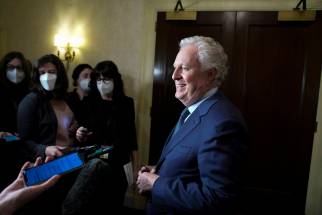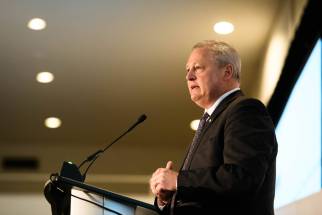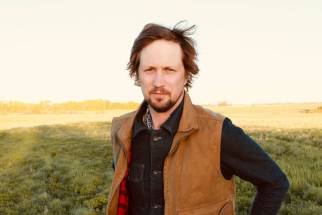Charest offers conservatives a chance the party’s extremist candidates don’t
Read this article for free:
or
Already have an account? Log in here »
To continue reading, please subscribe:
Monthly Digital Subscription
$0 for the first 4 weeks*
- Enjoy unlimited reading on winnipegfreepress.com
- Read the E-Edition, our digital replica newspaper
- Access News Break, our award-winning app
- Play interactive puzzles
*No charge for 4 weeks then price increases to the regular rate of $19.00 plus GST every four weeks. Offer available to new and qualified returning subscribers only. Cancel any time.
Monthly Digital Subscription
$4.75/week*
- Enjoy unlimited reading on winnipegfreepress.com
- Read the E-Edition, our digital replica newspaper
- Access News Break, our award-winning app
- Play interactive puzzles
*Billed as $19 plus GST every four weeks. Cancel any time.
To continue reading, please subscribe:
Add Free Press access to your Brandon Sun subscription for only an additional
$1 for the first 4 weeks*
*Your next subscription payment will increase by $1.00 and you will be charged $16.99 plus GST for four weeks. After four weeks, your payment will increase to $23.99 plus GST every four weeks.
Read unlimited articles for free today:
or
Already have an account? Log in here »
Hey there, time traveller!
This article was published 10/03/2022 (1370 days ago), so information in it may no longer be current.
There is nothing the federal Liberal party fears more right now than a seasoned, moderate politician with a national profile and a track record on environmental issues taking over as leader of the Conservative Party of Canada.
Liberals can only hope CPC members — whose party has morphed into a far-right, western-based rump organization that’s been dragged into the dark corners of U.S.-style libertarianism — reject that brand of progressive leadership.
Going up against a party whose leader takes selfies with law-breaking “freedom convoy” occupiers is the Grits’ best chance at maintaining power, maybe even forming a majority government.
That’s why former Quebec premier and one-time leader of the federal Progressive Conservative party Jean Charest’s entry into the race to lead the CPC is bad news for Prime Minister Justin Trudeau. He would much rather square off against the likes of leadership candidate Pierre Poilievre, whose pitbull personality and juvenile antics — including a vow to fight “JustinFlation” and “legalize smiling” by ending all COVID-19 restrictions — would surely give Trudeau the upper hand in the next federal election.
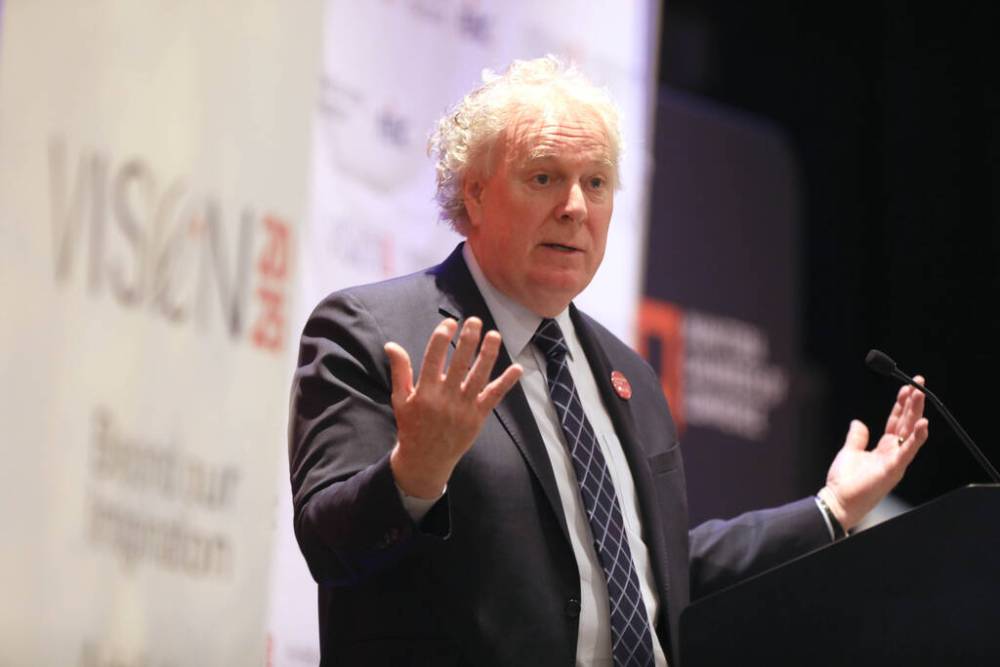
“I’m running for prime minister to give you back control of your life,” is one of Poilievre’s campaign slogans. He has it pinned on his Twitter account. It’s unclear who Poilievre believes has lost control of their lives (other than maybe a few “freedom convoy” leaders facing prosecution), what caused the loss of control or how he plans to restore it.
The big question for Conservatives is whether they’re interested in stepping back into mainstream politics by choosing a leader with national appeal and a chance of forming government.
Many in the party’s current leadership group, including interim leader Candice Bergen and former CPC leader Andrew Sheer, are giddy with excitement about the party’s new-found brand of Tucker Carlson conservatism. It’s easily distinguishable from the Liberals’ squishy, woke retail politics and it competes well with the unhinged doctrines of Maxime Bernier and his People’s Party of Canada.
It doesn’t seem to matter to them that there’s no market for that brand of politics in vote-rich southern Ontario, Quebec, the Atlantic provinces or in most large Canadian urban centres — including Winnipeg and Vancouver. They don’t seem to care.
The big question for Conservatives is whether they’re interested in stepping back into mainstream politics by choosing a leader with national appeal and a chance of forming government.
Many traditional conservative voters do care, though, and are feeling politically homeless these days. They abhor the sharp right turn the CPC has taken and long for the days of a sensible, market-driven, fiscally conservative party that has progressive views on social issues.
They can’t bring themselves to vote for a Liberal party whose leader has no regard for fiscal responsibility and whose record in office is fraught with ethical breaches. And they could never vote for the far-left New Democratic Party.
Whether Charest could provide a home for those disenfranchised voters remains to be seen. Even if he does win the leadership in September, he will preside over a divided party dominated (for the time being) by social conservatives whose views on abortion, LGBTTQ+ rights, reconciliation and climate change are alien to most Canadians, particularly east of the Manitoba-Ontario border.
It would be no small feat (as it hasn’t been for previous CPC leaders) to find enough consensus within the deep fissures of the party to maintain caucus solidarity and present a united front to Canadian voters.
Still, it can be done. Charest has a far better chance of doing it than an ideologue such as Poilievre.
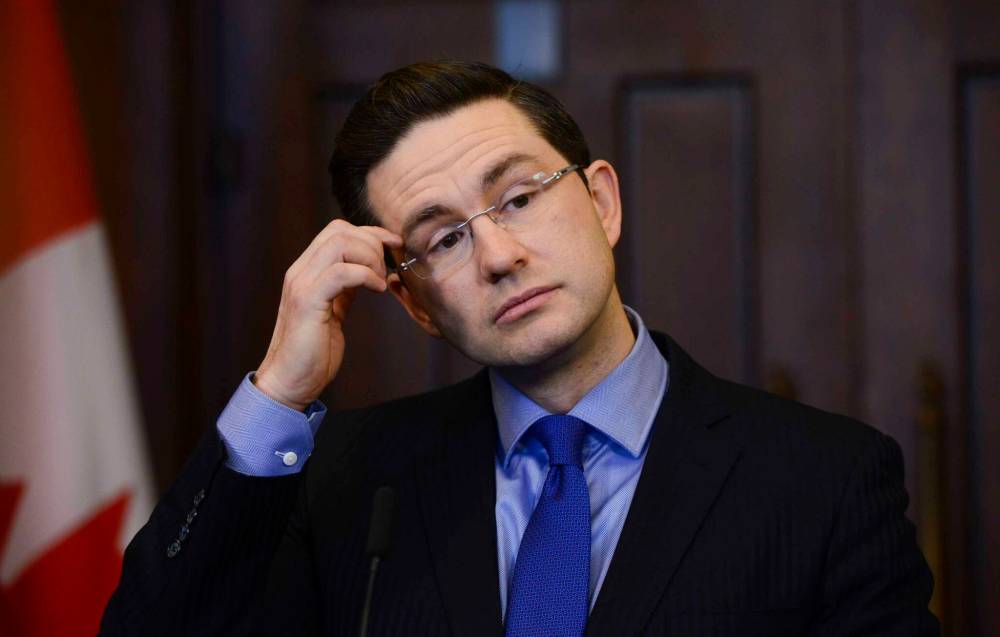
Opposition parties don’t usually win office per se — governments tend to defeat themselves over time. All governments have an expiry date. But the strength or weakness of an opposition party can have an impact on the timing of that inevitability.
Charest would have a much better chance of accelerating a Liberal demise than Poilievre. A Poilievre-led CPC would almost certainly help extend the Liberal reign.
There is little doubt Trudeau is getting close to his expiry date, if he hasn’t reached it already. After 6 1/2 years in office, the time-for-a-change dynamic is starting to creep in.
Whoever the CPC picks as their next leader will have a significant impact on how long Trudeau can hang on.
tom.brodbeck@freepress.mb.ca
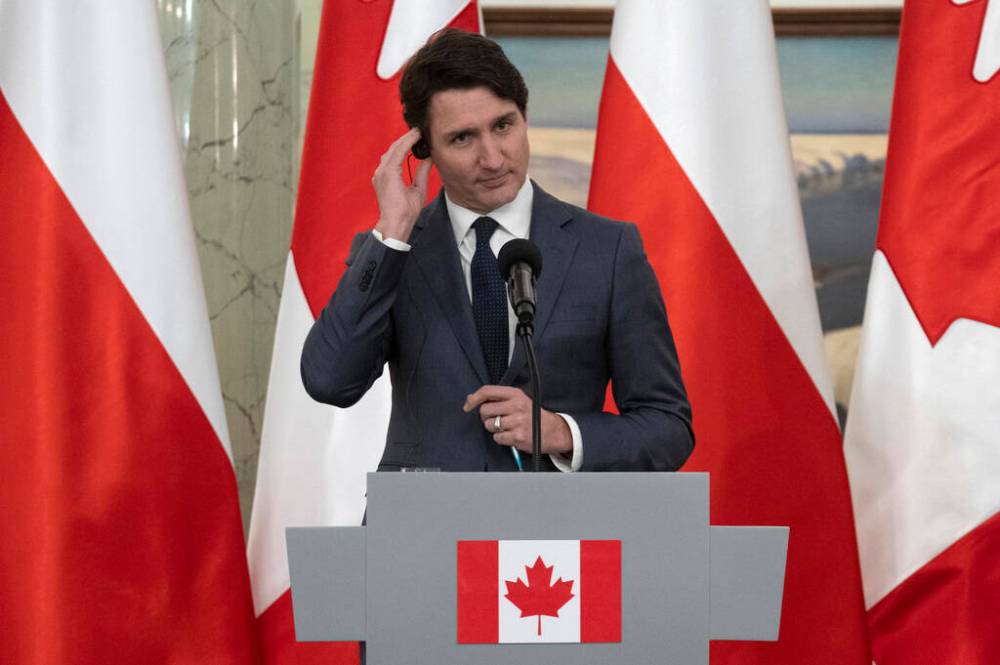
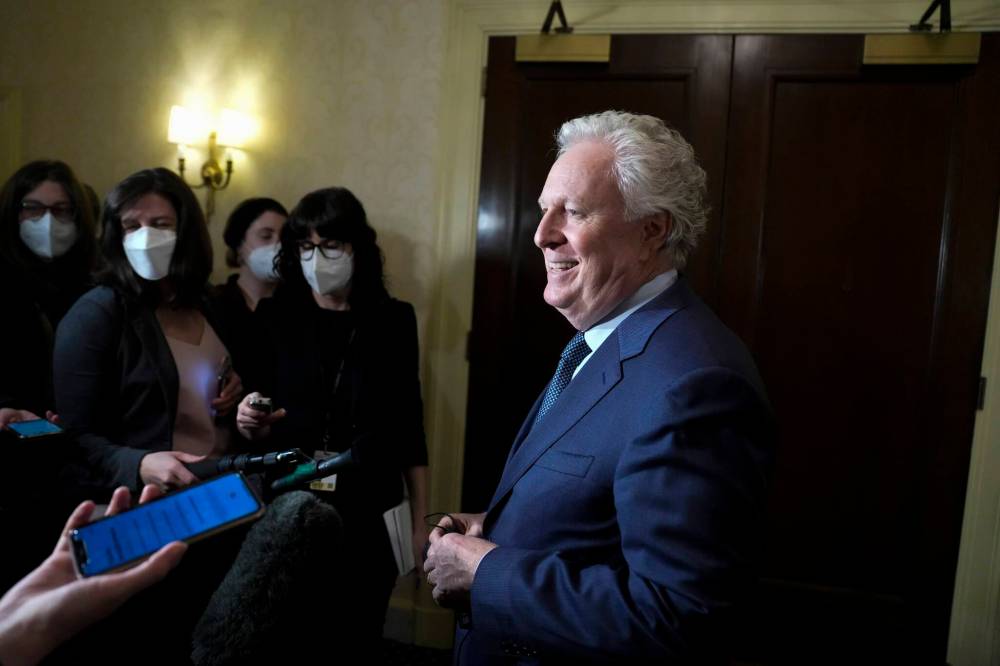

Tom has been covering Manitoba politics since the early 1990s and joined the Winnipeg Free Press news team in 2019.
Our newsroom depends on a growing audience of readers to power our journalism. If you are not a paid reader, please consider becoming a subscriber.
Our newsroom depends on its audience of readers to power our journalism. Thank you for your support.






